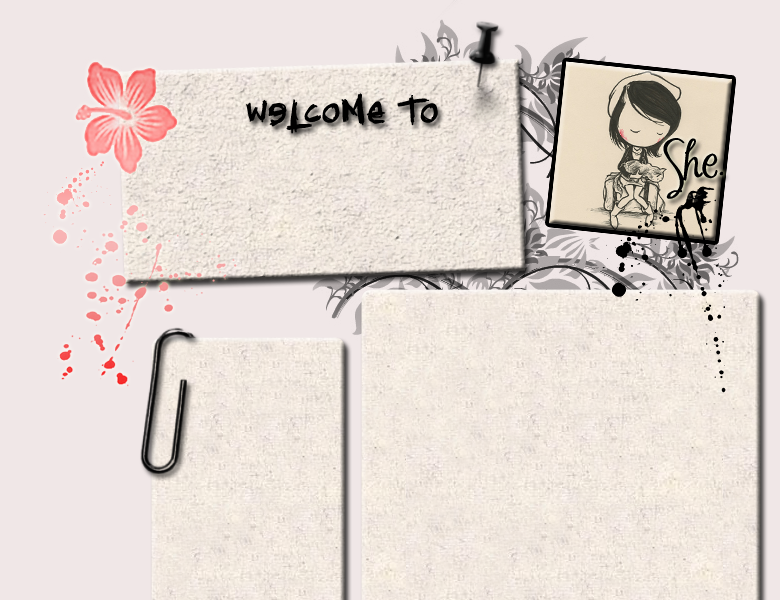I've been meaning to write this for a while now. For some reasons (ie: mental block, time-constraints and pure procrastination) I tend to "sideline" this entry, up until a few days ago, when a rather "disturbing" event cropped up in one of my friend's blog.
Now, before I explore any further as to what spurred me to continue this entry, allow me to dwell a bit on the relationship between a doctor and his/her patient, as advocated by the Australian Medical Association (AMA).
"A doctor-patient relationship is a delicate balance between collaboration and mutual respect."
Below are some of the guidelines proposed by AMA with regards to ethical behaviour expected of doctors:
The Doctor and the Patient
1. Consider first the well-being of your patient.
2. Treat your patient with compassion and respect.
3. Approach health care as a collaboration between doctor and patient.
4. Practise the science and art of medicine to the best of your ability.
5. Continue lifelong self-education to improve your standard of medical care.
6. Maintain accurate contemporaneous clinical records.
7. Ensure that doctors and other health professionals upon whom you call to assist in the care of
your patients are appropriately qualified.
8. Make sure that you do not exploit your patient for any reason.
9. Avoid engaging in sexual activity with your patient.
10. Refrain from denying treatment to your patient because of a judgement based on discrimination.
11. Respect your patient’s right to choose their doctor freely, to accept or reject advice and to
make their own decisions about treatment or procedures.
12. Maintain your patient’s confidentiality. Exceptions to this must be taken very seriously. They may include where there is a serious risk to the patient or another person, where required by law, where part of approved research, or where there are overwhelming societal interests.
13. Upon request by your patient, make available to another doctor a report of your findings and treatment.
14. Recognise that an established therapeutic relationship between doctor and patient must be respected.
15. Having initiated care in an emergency setting, continue to provide that care until your services are no longer required.
16. When a personal moral judgement or religious belief alone prevents you from recommending some form of therapy, inform your patient so that they may seek care elsewhere.
17. Recognise that you may decline to enter into a therapeutic relationship where an alternative health care provider is available, and the situation is not an emergency one.
18. Recognise that you may decline to continue a therapeutic relationship. Under such circumstances, you can discontinue the relationship only if an alternative health care provider is available and the situation is not an emergency one. You must inform your patient so that they may seek care elsewhere.
19. Recognise your professional limitations and be prepared to refer as appropriate.
20. Place an appropriate value on your services when determining any fee. Consider the time, skill, and experience involved in the performance of those services together with any special circumstances.
21. Ensure that your patient is aware of your fees where possible. Encourage open discussion of health care costs.
22. When referring your patient to institutions or services in which you have a direct financial interest, provide full disclosure of such interest.
23. If you work in a practice or institution, place your professional duties and responsibilities to your patients above the commercial interests of the owners or others who work within these practices.
24. Ensure security of storage, access and utilisation of patient information.
25. Protect the right of doctors to prescribe, and any patient to receive, any new treatment, the demonstrated safety and efficacy of which offer hope of saving life, re-establishing health or alleviating suffering. In all such cases, fully inform the patient about the treatment, including the new or unorthodox nature of the treatment, where applicable.
[NOTE: While there is little doubt that all the above are equally important, note that I particularly feel strongly for 10 statements (hence the highlights!)]
Well what am I getting at, by spewing important (albeit "boring") medical ethics? In a nutshell, patients (usually) come to us at a time when they are most VULNERABLE - physically, mentally, emotionally. Consequently, they need to be protected from exploitations of any form....which is perhaps the MAIN reason why the guidelines came into being.
Hence the reason why doctors are prohibited to initiate/establish "intimate" relationships with their current patients in the first place.
----------------------------------------------------------------------------------------------
What happens, however, when the patient (or rather the patient's relative in my friend's dilemma) becomes utterly besotted with the carer instead?
This friend of mine, N, is a 5th year medic. During one of her clerking sessions with a patient, she met L, the patient's nephew. It was (apparently) "love at first sight" for L, who, for the next few days or so, could not stop thinking of N. Armed with the sole knowledge that N is a medical student from a particular university, he sought high and low for her name, email address and/or hp number. L eventually found out that N's housemate, C, owns a blog....and so pleaded C (and her friends) for N's contact details on her webpage. L even went so far as to claim that "as long as she is not married, I still have a chance", despite being told N is already in a steady relationship.
Frankly speaking, I don't know what to make out of this situation. What I dread now, however, are the implications should L get hold of N's contact details. If he amicably "backs off" from his original intention upon discovering N is attached, and just wants their relationship to be platonic, then I don't have much qualms about that. But what if he habours his desire still? Judging from his stand [re: "as long as she is not married, I have a chance"], I assume he still does. Should L become aggressive in his pursuit, what next?
Labels: Medicine/Hospitals/Medics, Random thoughts


